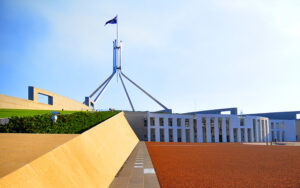
Currently, super is taxed at 15% in the accumulation phase, and they are proposing that this is raised to 30% on amounts in excess of $3M. One issue is that although its only initially predicted to impact 88,000 people assuming it is brought in in 2 years, it has been said that there will be no indexation, meaning the ‘real value’ of the cap will be much lower in the future.
Now, there isn’t a lot of detail, but we can look at what we do know. There has been a lot of knee jerk reaction to the proposal, but we feel there needs to be a bit of balance in the discussion, and things to remember.
The first one is, this isn’t law yet.
It may never be, and as a result, may never be something to get concerned over. Also, if you were in pension phase, $1.7M would be tax free, and it is likely tax credits from owning Franked Australian Shares would likely mean that tax was relatively low on a $3M balance in any case.
Secondly, there are several ways to ensure that this does not impact you or that the impact is reduced.
Here are just a few.
Try and split your contributions with your spouse. Simply, every year you can split up to 85% of your contributions with your spouse.
This would be ideal in a scenario where you have some time on your side, and a spouse with a significantly lower projected balance. On top of this, you could withdraw money at or close to retirement, and contribute it (up to $110,000 per annum or $330,000 for a 3 year period), again reducing a high balance and adding to a lower balance.
A couple who would have $4M and $1M who were able to split this so they had $3M and $2M simply wouldn’t face the additional tax, as we currently understand the proposal.
Let’s say this isn’t able to be done for you. What then? You could simply take the excess money out of super (assuming you have met a condition of release and are over sixty) and put it into a family trust. If you have beneficiaries such as children or parents, or your personal tax rate is low, it’s likely your average tax rate on these funds would be less than 30%.
Alternatively, you could upgrade your family home. If a couple had a combined balance of $7M in super, it should be fair to suggest that withdrawing $1M tax free (again assuming you are over 60 and have met a condition of release) should mean you can live comfortably on the $6M remaining in super. What to do with the $1M? Simply upgrade your personal residence. This will take $1M from a taxable environment and move it to what is currently a tax free environment. Additionally, this asset would likely be tax free to your dependants, according to current laws.
If you are happy with your house and don’t need a house that is $1M more expensive than the one you have, you could either consider philanthropy with a personal foundation (known as a private ancillary fund or PAF) or simply giving some funds to your dependants, bringing forward any inheritance.
By Steven Putt – Partner
The information above isn’t intended to be advice, and in addition is not exhaustive. It is just meant to highlight that a soundbite or a proposal isn’t necessarily anything to be too concerned about. However, if you think this may affect you or someone you know, it is worth getting in contact to discuss your, or your family/friends position in detail.




